I’m pretty certain that once you started your transitioning or natural hair journey the term baking soda came up frequently in hair forums, blog posts or video tutorials as a natural solution in your hair care regimen. Baking soda is possibly the most used or nominated solution for those who follow, or want to follow, the no-poo (no shampoo) method for hair wash.
The Baking Soda Solution
Baking soda or sodium bicarbonate is a white powder that has many uses from cooking to removing paint and corrosion, and you probably used it in your cakes and bread. In the natural hair community, as people became aware of the damaging effects of conventional shampoo on curly hair some decided to adopt different solutions such as low poo shampoos while others just ditched them all together and went no-poo (no shampoos) with baking soda.
As you know I’m all in for the natural approach to hair products and once I started transitioning, just as many of you, I heard about the baking soda solution. I believe the two main reasons it has attracted so many people is the fact that it offers its supporters an eco-friendly and cost-effective approach to hair care.
Firstly, there is no waste to add to existing landfills and there is no release of harmful chemicals down the drain into the environment (water banks). Secondly, our society is at a place in time where people buy just about anything that is effectively marketed without thought for the real need for it. Many, like me, have these concerns into account and I can understand the high number of supporters just because of this. However, no new solution to no-poo can survive solely on this philosophy if it doesn’t deliver results.
The Benefits
And if results are what you are looking for when googling baking soda as an effective cleanser for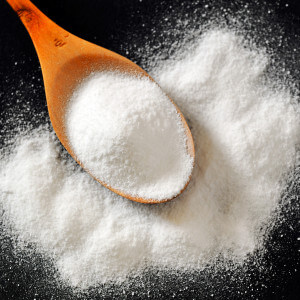 your scalp and hair, then you will find endless accounts. Some of the major benefits are as follows:
your scalp and hair, then you will find endless accounts. Some of the major benefits are as follows:
* Effective Cleaner
* Hair is left soft
* Healthier hair
* Less hair frizz or No frizz at all
* Loosens curl pattern, hair is easier to manipulate
* Longer between washes
There are different recipes available online, but you will either use it as a paste or a liquid solution that you massage onto your hair and follow with an apple cider vinegar (ACV) rinse to help close the cuticle layers of the hair. Recipes start from 1 tbsp of baking soda to two cups of water or 2 -3 tbsp to 1 cup of water if you want to make a paste.
Avid instructors will tell you to adjust measurements according to your hair’s results and will also talk about an adjustment period where your hair will feel anything but pretty. However, they say, if you’re patient you will reap the benefits. There are people who have been “baking” their hair for a long time now.
Caution?!?
Nevertheless, I don’t blindly follow other people’s advice without doing my own research first. I did find some accounts of people who had scalp irritations and said baking soda ruined their hair. Grant you, I found more good than bad reviews, but you can never have too much information and I decided to understand the disparity of opinions. Just as you can buy into every hair product marketing campaign you see, you can also buy into a hair practice just because it’s natural, seemingly harmless and everyone seems to be doing and loving it. I urge you to do your own research first and weigh in all the facts.
Wanna know what I found out? Then continue reading.
Baking Soda & PH
As you know products that are meant to be used on our hair and skin are carefully formulated to consider the pH of the product and of the place they are going to be used on. Although there are some questionable products out there, they all have to pass a seal of approval for consumer’s use, and that means testing. (If you want to read more on pH importance for natural hair read this article.)
All hair products you buy are made of several ingredients that have a chemical representation. Just like water (H2O), baking soda also has a chemical representation (NaHCO3) and you know that when two or more chemicals meet there is a reaction. In the hair care industry, all products are supposedly balanced in terms of pH. Therefore, I wanted to find out how do our hair and scalp react to this baking soda approach to hair care. Just because something is natural it doesn’t mean it’s OK to use. Mushrooms are natural and you can still die if you eat the wrong one.
Some Chemistry
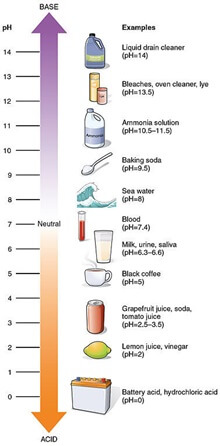 I will need to go a little bit into chemistry, so please bare with me for a while. If you remember your chemistry lessons, a pH scale is used to measure hydrogen concentration in water-based solutions. It ranges from 0 to 14 with 7 being neutral. Anything that scores below 7 is considered an acid and has lots of hydrogen ions and anything that scores above 7 is considered an alkali and has many hydroxide ions.
I will need to go a little bit into chemistry, so please bare with me for a while. If you remember your chemistry lessons, a pH scale is used to measure hydrogen concentration in water-based solutions. It ranges from 0 to 14 with 7 being neutral. Anything that scores below 7 is considered an acid and has lots of hydrogen ions and anything that scores above 7 is considered an alkali and has many hydroxide ions.
In this scale, human hair ranges from 4.5 to 5.5 and this is considered an acid. Surprising, isn’t it? I would have thought it was neutral Anyway, I’ve also found that when baking soda is mixed into a chemical solution that is either acid or alkaline the natural effect is for baking soda to neutralise the pH of that solution. In other words, the mixture would have a neutral pH of 7.
However, this only happens when baking soda is mixed into a solution with other chemicals. If, as it is prescribed in the no-poo method, it is only mixed with water your liquid solution will become alkaline with a 9 in the pH scale. What does this mean to your hair?
Understanding a PH of 9 For Hair
A pH of 9 basically means that your hair and scalp are now alkalines. Is this good? Well, our hair and scalp oil (sebum) have an acid environment because it helps to prevent fungi and bacteria from growing resulting in issues such as dandruff. If they are now alkaline there is no protection from this.
Additionally, an acid environment is what helps to keep the cuticle layers of the hair closed and healthy, which allows sebum to travel along the hair shaft to protect it from moisture loss and dryness. When your hair is alkaline from the use of baking soda you are opening the cuticle layers of the hair preventing sebum from protecting the hair strand and exposing its internal structure to damage (tangles, brittle hair, split, high porosity and breakage). This doesn’t sound good, doesn’t it?
Some Surprises
However, I was actually surprised to find out, through PhD scientist from The Natural Haven Bloom post, that a study concluded that our hair structure is not noticeably altered within the pH range of 4-10 when using a strong acid (hydrochloric acid with -1 pH) or strong alkaline (lye with 14 pH). This means, that using baking soda with a 9 pH is not that bad, isn’t it?
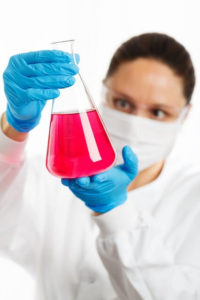
At this point, I thought – “Hmm, maybe using baking soda isn’t that bad!?”. I mean it does open up the cuticle layers, but this is why no-poo supporters will tell you to finish your hair wash with an apple cider vinegar (ACV) rinse to close hair cuticles. Using apple cider vinegar (3 pH) in a water diluted solution allows the hair to effectively return to its ideal pH of 4.5 – 5.5. There is no lying in this, it’s a fact! Still, I continued my investigations which seemed to be leaning more towards the no-poo supporters.
Additionally, the same source, also tells me that hair strands only start to suffer structural changes from a pH of 9. Apparently, as I told you here, soaking hair in water, which is neutral (7 pH), for 10-15 minutes will yield greater structural changes in the hair strand. Why is this so I asked myself?
Other Explanations
The explanation is in our hair’s composition. Water, along with other elements such as minerals, can account for 12% to 15% of our hair’s composition at any given time. Our hair is porous to a degree and it allows water in, which makes it swell and open its cuticle layers. However, it will return to its normal shape unless you seriously like to keep your hair wet most of the time. Then you will experience hygral fatigue.
Are you still intrigued? So was I, but it occurred to me that although the cuticle layers are opened with baking soda and then closed with an ACV rinse, the pH balance of our hair and scalp oil is disrupted as baking soda is quite abrasive. This means scalp infections and/or irritations and removal of sebum which is now unable to protect hair. Water may cause pH changes on our hair, but it doesn’t disrupt the pH balance. It is neutral!
Moreover, although regular relaxers have a pH that ranges from 11 – 14 and are, therefore, within the range where structural damages can be observed, mild relaxers have a pH range of 8 to 11. So can we really say that the use of baking soda does not affect our hair structure with a pH of 9? From a pH of 9 our hair starts to show changes in its structure, it becomes denser. Many claim that after using baking soda as a hair wash their hair is softer and the curl pattern is loosened. This reveals a change in the hair’s proteins similar to a relaxer, the disulfide bonds in the cortex (inner structure of the hair) are weakened by the use of baking soda.
Good or Bad, Then!?!
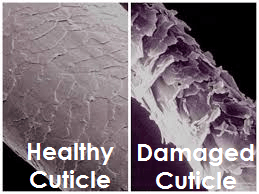 The fact is many have been using baking soda for years without any problems. This could be because studies have reported that individuals’ hair pH can range from as low 3 and as high as 6.6. So, maybe more resistant to pH variations. On the other hand, those who complain of dry and brittle hair, and of irritations and burning sensation on the scalp may have bleached/relaxed hair. In this case, the pH range limit for structural changes on the hair is altered from 4 – 9 to 4 – 7 pH.
The fact is many have been using baking soda for years without any problems. This could be because studies have reported that individuals’ hair pH can range from as low 3 and as high as 6.6. So, maybe more resistant to pH variations. On the other hand, those who complain of dry and brittle hair, and of irritations and burning sensation on the scalp may have bleached/relaxed hair. In this case, the pH range limit for structural changes on the hair is altered from 4 – 9 to 4 – 7 pH.
Another explanation, for the differences in opinion, could be hair texture and porosity. A coarser/thick or low porosity hair will need a stronger pH solution to break some or all disulfide bonds in it. Conversely, a fine hair only needs a pH of 6.5 to 8.2 to see this happen.
Final Thoughts
Conclusion, from a pH balance point of view, using baking soda to wash your hair will disrupt its pH balance, and bring about problems which you can read more about in my post Why Should I Even Care About Natural Hair & PH. Many have not done well with this solution, but others claim their hair has flourished, maybe due to the reasons mentioned previously.
I, for once, do not wish to subject my hair to such an extreme pH change. It is like a roller coaster ride, a change from 8 to 80, your hair goes up to a 9 pH to then quickly go back again to its ideal pH (4.5 – 5.5). Regardless of this, the natural oils have already been striped much like a conventional shampoo, which by the way normally has some kind of oil or lubricant to replace what it takes. Can I honestly say that this continued action won’t damage my hair after a period of time? I don’t think so, I much rather prefer co-washing my hair (washing with conditioner) or make/buy my own natural no-poo shampoo.
Final aside, as a hair cleanser baking soda doesn’t even seem to be effective at all. Scientist blogger from The Natural Haven Bloom performed an experiment in which baking soda performed poorly at cleaning dirty/oily hair, even after 10 minutes soaking in the solution. Check it out here!
Please find bellow further reading links if you’re interested in learning more. There is lots of information out there! Ultimately, you’ll be the judge yourself or should I say your hair?
Do you use baking soda to wash your hair? What are your results? Would you consider using baking soda?
Follow these references to learn more:
The Natural Haven Bloom
Baking Soda Destroyed My Hair
Featured Image Credits: pH scale image by OpenStax College under Creative Commons license

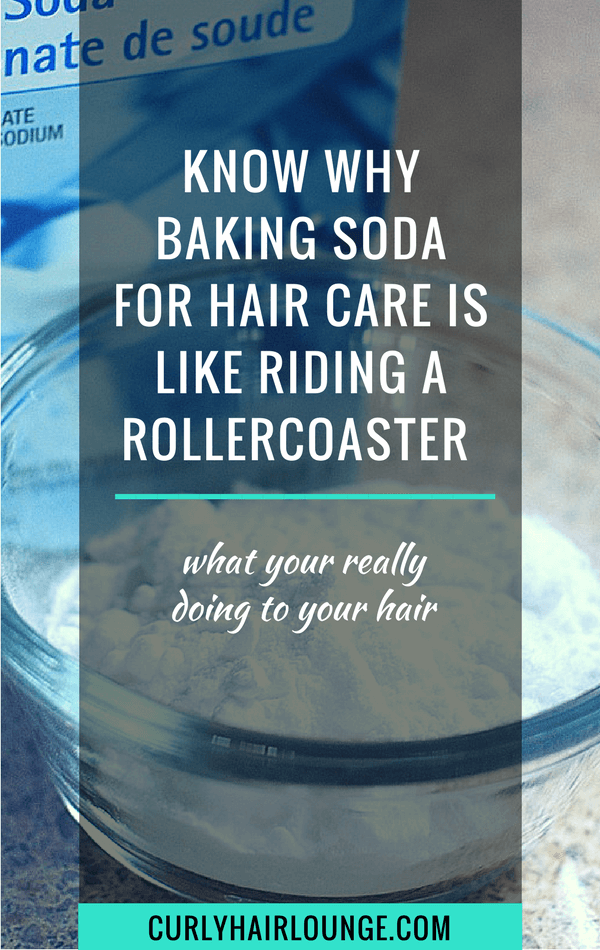
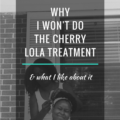

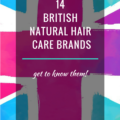
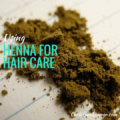
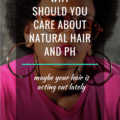
32 thoughts on “Know Why Baking Soda For Hair Care Is Like Riding A Rollercoaster”
Hello there,
I know baking soda is used with great results on a wide variety of things, but I never considered using it on my hair. My hair is in fairly good condition, but of course if it can get any better I would like to try it. I do color my hair and use a straightener that takes a lot out of it.
I guess it wouldn’t hurt to try it once.I’m curious though. How do you test the ph of your hair?
Hi Debra, yes baking soda has a lot of uses just like apple cider vinegar. The applications are so diverse that it’s mind boggling. However, if you are considering using baking soda on your hair be aware that because your hair is coloured it is more porous and it can make your hair dry and brittle, or even break the disulfide bonds in the hair, making it less elastic. To test pH you have to have a liquid based solution, therefore I believe you have to wet your hair and rub it on a pH strip or equivalent.
you have really done your research a lot.The fact that you have also experimented brings a personal touch to this.
I have learnt a lot and to be truthful,i did not know this.I use baking soda on my face.I stay with it for 15 min the wash it off.It helps remove whiteheads and blackheads.
Thank you, I try to give information that is correct and based on facts. It’s important for people to not get carried away with the flow, and do something that they’ll regret later. I have tried apple cider vinegar but not baking soda. However, you are giving me new information, I know baking soda has many applications but was unaware that you could use it on your face. Good to know! We’re always learning something new everyday! Cool.
I am always looking for more natural ways of doing things. I have known for a while now that baking soda has many applications (I think whitening teeth is another use although I have never used it in that way. Is it true? Baking soda and lemon juice).
Vinegar is another of my favorites, but I digress. Getting the various proportions right is very important because but I do believe that one should be aware of just how flexible (or inflexible) alternative products are when promoting such. Reason being is that when people try them out for the first time the mixing process should have minimal damaging effects if they get the measurements slightly wrong. If you get what I mean?
Hi Dillon,
I personally prefer to use natural products, but I believe people should be aware that things can also go wrong when trying them out. Just because it’s natural it doesn’t mean that things can’t go terribly wrong. If you want to do it it’s always good to know the risks first, and not complain about it later. That is what I am trying to do with this article.
I also heard that baking soda can be used to whiten your and I’d like to try it out but I have to do my research.
I use about 5 products on my hair. This is because I am trying to prevent hair loss. I cannot let go of my other products. So I definitely cannot have chances of having a chemical reaction with baking soda. Lol. It is good to know these facts. Certainly very informative. Thanks for this.
Hi Chris, unfortunately hair loss happens to 50% of men. Have you read my Onion article? Studies have shown that it can an effective treatment for hair loss as much as the treatment shampoos for hair loss. No, I wouldn’t recommend you using baking soda, it could accelerate your hair loss. Thanks for spending the time to comment here.
Great information, so my question is, what is a natural product alternative to use instead of baking soda?
Hello Vernessie!
There are several no-poo alternatives to baking soda, you have soap nuts from which you can make a shampoo (you can also buy it), you have bentonite clay, rhassoul clay , oat water, rice water, you can use castille soap which is made from 100% olive oil (however its pH is too alkaline, and you need to balance your scalp and hair pH). You can also co-wash there are some good brands out there like As I Am or Alikay Naturals, try them and see if you like them. Read this article this article for 6 No-poo shampoo alternatives.
Hope this helps, let me know!
Hmm, I’d never even heard of using baking soda to clean my hair (though I’m not surprised, apparently it cleans everything!) however I have to say that having read your review, I’ll not be using it on my hair. It just seems like too much of a drastic change, and I’d be worried about what would happen to my hair.
Thanks for the interesting information anyway, I’ve definitely learned something today!
Chloe
Hi Chloe, I’m glad I was able to bring you some new information about hair care.
Baking soda definitely have many benefits. But I have never washed my hair with it. My hair is in good condition. I use an organic hair shampoo, so I know that there is nothing harmful in it. I have used baking soda for cleaning my teeth. It’s also a very effective jewellery cleaner. I used it recently to clean off those brown color on my sterling silver earrings. Works wonders!
Hi Teresa,
Baking soda as many uses indeed, but it may not be suited for use in hair care the way many people use it. Good to know you found a few good uses for it.
Funnily enough I was just reading an article on the effects of baking powder for weight loss ( apparently its nothing more than a myth and has no use for dieting whatsoever ). It does however have many other uses – one of which you have covered here! Great article – never knew this effect happened to hair with baking soda
Hi Chris,
Thank you fo your feedback, I’m happy to know you enjoyed the article.
I used baking soda on my hair without ACV, and it completely fried my hair. It has been breaking, shedding and severely shedding for 8 months. I have been getting frequent trims but have seen no results, If I put something like ACV on my hair or something with a low PH would this help my hair to return to its natural state or have I done possibly some permanent damage to my hair follicles or scalp.
PLS RESPOND 🙂
Hi, Jack. Sorry to hear about you hair shedding and breaking problem. I don’t believe an AVC rinse would solve your problem first you need to stop your hair breakage which could be due to washing your hair with baking soda, but it can also have other reasons (read this post about hair shedding and breakage). Secondly, what is your hair regimen? Do you deep condition regularly? How often do you do a protein treatment? It sounds like your hair needs it. Do you colour your hair? Was your hair already damaged when you did the baking soda wash? Do you use a regular shampoo or a sulphate-free shampoo?These are all things you need to consider.
Read this post and download the Free 5 Step Guide to Natural Hair Breakage Control and find out how you can make a plan to stop your breakage. I hope this helps.
Hey, sorry for the super late reply. But yes I shampoo about every other day, condition every other day. I have tried protein treatments but they have completely fried my hair, I must be protein sensitive or something, as it has happened three times. Is it possible that this one time I was my hair with about 3 tablespoons of baking soda has permanently ruined my hair, as it has been 2years since the incident and my hair is still very dry, brittle, fine and course with some breakage. It also feels dead, stringy mushy when wet.
Jack
Hi Jack,
It is hard for me to try and give you advice without knowing your habits, hair routine, products used and hair profile. However, I will try to help you the best I can. First of all please stop the baking soda, three tablespoons is a “cocktail bomb” for your hair.
As for protein treatments they should not be done every week if you do they will cause further breakage. When you do them they should also be followed with a moisturising deep conditioning treatment as they are drying. Inspect your hair products and check the ingredients list to see if it has protein in the first 5 ingredients. If the products you regularly use all have protein in them then you overloading your hair. If this is your case I would cut protein in my products and do moisturising treatments until my hair breakage would reduce. You can also try a black tea rinse to strengthen your hair and reduce help breakage.
If you use a sulphate shampoo, I would advise you to change it for a low-sulphate shampoo or a use a no-poo shampoo. Shampooing your hair every other day is very drying for your hair and will help increase hair breakage. Shampoo only once a week (always followed by a conditioner) and co-wash in between that. Co-washing is gentle on your hair and won’t strip your hair of its natural oils.
When you say your hair feels dead, stringy and mushy it’s quite possibly because your hair has lost its elasticity maybe because of too much baking soda and/or protein.
Without knowing more about your circumstances this is the only advice I can give you. I hope this will help Jack.
Monica
Can this loss of elasticity be permanent. My hair seems to have been this for the last 2 years. There must be a huge problem. Usually shampoo once a week, conditioner twice a week. I thought I could be protein deficient but the two times I did that it fried my hair ever more and made it ever more dead, so Im not too sure about that.
Hi Jack,
Loss of elasticity can be permanent, baking soda, much like a relaxer, will open the cuticle layers of the hair and permanently alter the structure of your hair. Some people will use baking soda on their hair and have little or no bad effects, and others will completely damage their hair. To me, trying baking soda feels like a Russian roulette game. If you’ve tried it on your hair more than once and every time you did it you felt an immediate change in your hair for the worse than I guess you have your suspect. Stop using baking soda it’s not good for your hair.
Hello, thank you for providing insight regarding using soda for hair wash.
I never thought that soda can be used in this way. My girlfriend is a big proponent of soda. She uses it for hair, armpits, everywhere. She tells that soda is good for removal of dandruff. Maybe.
Overall, I guess that it is better to avoid it because it can mess up hair.
I think that there are a lot home made shampoos, who can serve in a healthier way.It can be from coconut or eggs. Overall, I guess it is not going to harm hair if somebody would try it once. After it, we could know if it works for us or not.
Thanks for interesting information, all the best, Nemira.
Hi, NemiraB, thank you! I’m happy this information sparked your interest about baking soda and brought new knowledge for you, this is what I hoped to achieve – awareness!
Hi Monica, I’m a huge fan of hair care natural stuff, but I admit I haven’t tried baking soda. I have very curly hair, but as I am white, it doesn’t always look the way I want, I mean my curls don’t have all the exact pattern. However, my biggest problem would be frizzy hair so when I read that baking soda tames it, I was like ‘ I really have to try this”.
However, just like you said, I’m not sure if it’s right to let your hair go from a normal pH to an alkaline one…I’m a pharmacist so I know something about this stuff, probably the best option would be using baking soda from time to time, but rather rarely than often. Or just like you said, making your own natural shampoo.
Hi, Ashley!
I’m sure your hair is beautiful, the thing is sometimes we just don’t know how to care for it and we don’t understand it. You can read >this post< about curly hair to get to know it better. The other problem we have is finding the right products for our hair and, yes, I wouldn't advise you to use baking soda on your hair, but you know this better than me your pharmacist. If you want to minimise frizzy hair read this post maybe it will help you.
Hello
I want to loosen my curl pattern. I heard people use like a baking soda mix to achieve looser curls. But from reading your article kinda made me disappointed because you said some people could get shedding, breakage, irritations, etc….and I really want loose curls, but I don’t wanna risk my hair of breakage and irritations. What should I do? ?
Also do you have any tips on how to make your hair grow faster? I have very slow hair growth?
Hi Bryana,
Yes, baking soda is known to do that for some people but you also risk damaging your hair and having scalp issues. Henna is the only natural ingredient people (not all) report to loosen their curl pattern. However, I would love if you could embrace and love your hair the way it is. To grow your hair you should pay attention to your hair care practices, diet and health, but here are a few posts I wrote about it: Washing For Faster Hair Growth, Inversion Method, Lunar Calendar For Faster Hair Growth, Grow Your Natural Har Faster, Onion A Natural Solution For Hair Growth.
I really enjoyed reading the chemistry behind this. After so many youtube and blogs, it’s refreshing to see one with actual science behind it. My question is about the use of baking soda on dreadlocks. Everywhere that I look for deep cleansing/buildup removal formulas for locs, they all say baking soda and ACV is a must. Given your findings, do you think there is an alternative for using baking soada for this use (buildup removal) that doesn’t damage the hair?
Hi Danielle! I am sorry to say, but I don’t know of any alternative that can help clean dreadlocks, I would imagine that you should use the same clarifying shampoo to clean them, but I an not versed in the hair care of dreadlocks, it is not my expertise. Sorry I couldn’t help much.
I wish I read this post earlier. I used baking soda just once but probably used more than recommended and my hair started breaking and shedding more. I did ACV rinse immediately afterwards.
My hair is not extremely dry or rough but just more shedding since using baking soda+ACV. How do i fix it?
Will simple sulphate free shampoo conditioner wash will work?
I am protein sensitive so cant use protein ingredients as well.
Hi Sharon, you need to get your hair checked by a professional to assess the damage and determine the best hair course of action.